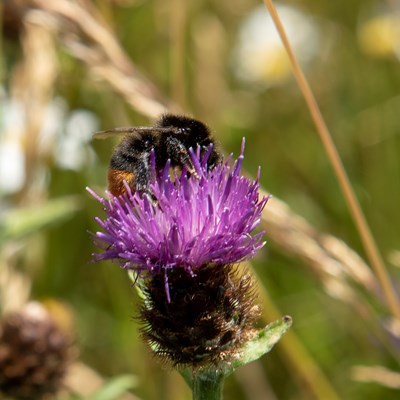A NEW project to help make school grounds bee-friendly will kick off in the new year.
The project, called Polli:Nation for the Next Generation, will see 24 schools and their local communities supported by specialist staff to help make their outdoor spaces more appealing to insects and pollinators, helping to increase local biodiversity.
It will be led by local environmental charity Learning through Landscapes with the support of Leicester City Council’s environmental education team.
Learning Through Landscapes made a successful bid to the Government’s Green Recovery Programme for the project. It was awarded £246,700.
As part of the project, the city council’s environmental education team – which already has strong links with school staff and eco-clubs – will help to implement initiatives to increase the number and range of pollinators visiting school sites. New habitats will be created with native wildflowers and plants that are known to attract more insects.
Working with the Wildlife Gardening Forum, the project will also develop resources and guidance for private gardens, community and public spaces. The forum also has a large online community which will be used to enhance involvement in the Leicester area.
The idea is to educate current and future generations in the importance of providing diverse, stable, native wild habitats that support a wide variety of different species of plants and insects.
Deputy city mayor Cllr Adam Clarke, who leads on environment, said: “This is great news for Leicester schools and for our environmental education team, which works so hard to ensure sustainability issues are at the top of schools’ agenda – for example, by assisting them in the Eco-Schools Green Flag scheme.
“Other initiatives – such as our ‘mealbarrows’ competition, where schools grow their own grub – already focus on how you can improve your local environment through sustainable gardening.
“Now, thanks to this funding award to our partners Learning Through Landscapes, we’ll be able to do even more. Projects like this one – that focus firmly on educating whole communities - can make a big difference in our crucial fight against the climate emergency.”
The project will begin in January when schools go back and will run until March 2022.
(ends)
